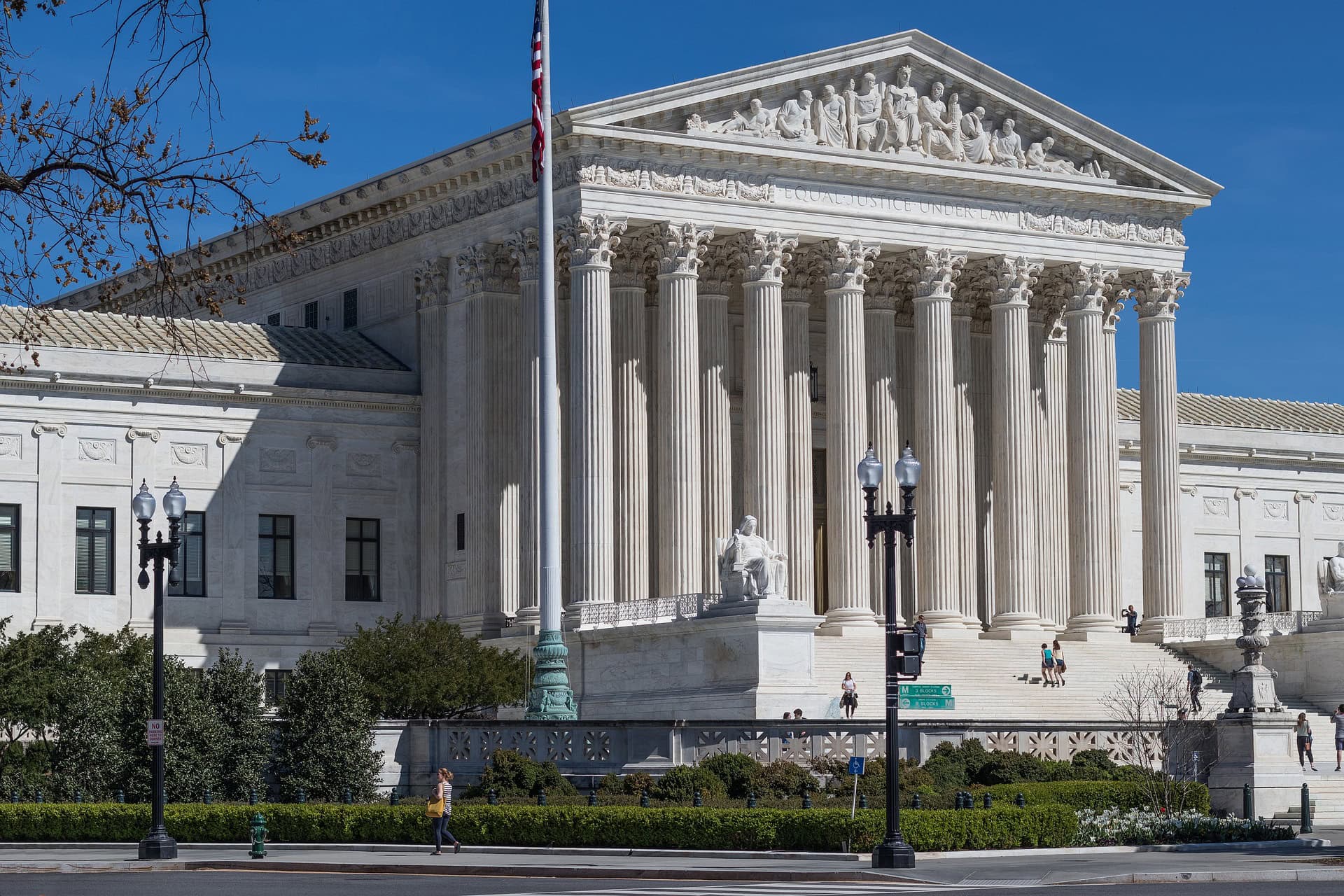The Supreme Court’s Reaffirmation of the Seventh Amendment in SEC v. Jarkesy
- Insights & News
- July 10, 2024
The Supreme Court's Reaffirmation of the Seventh Amendment in SEC v. Jarkesy
A very recent ruling by the Supreme Court came on June 27, 2024, in Securities and Exchange Commission v. Jarkesy, which held that the Seventh Amendment to the U.S. Constitution requires the Securities and Exchange Commission (SEC) to bring a civil penalty for securities fraud in the federal district courts before a jury, not through an administrative proceeding.
The SEC charged George Jarkesy, Jr. and his investment firm, Patriot28, LLC, with fraud in connection with the operation of their investment funds. If the SEC believes that someone has violated the securities laws, it has two options: It can bring the case in federal court or handle the matter internally through its administrative proceedings. In this case, the target for alleged violations of the securities law was adjudicated by the SEC itself. Thus, the action was handled by an administrative law judge—who works for the SEC—rather than a federal court.
This raises some very serious legal questions under the Seventh Amendment, which ensures there will be a trial by jury in certain civil cases. So, the real basic legal question of this case was whether under the Seventh Amendment, Jarkesy and his firm had a constitutional right to a jury trial in light of the SEC’s decision to handle prosecution of the charges in-house.
The Supreme Court has ruled that the SEC’s internal case handling method, which does not offer a jury trial, violates the Seventh Amendment. Now this could have a significant impact on how the SEC and potentially other federal agencies enforce their rules.
The SEC’s Enforcement Action
The SEC enforcement charged several instances of allegations for fraud-related activities.
- Misrepresentation of Investment Strategies. The SEC charged Jarkesy and Patriot28 with the misrepresentation of investment strategies to misled investors.
- False Information Regarding the Auditor and Broker. Jarkesy and his firm were also charged with false representations regarding an auditor and a prime broker for the funds.
- Inflating the Value of the Funds. Another grave allegation was that Jarkesy and his firm inflated the value of the funds under their management.
The SEC took the following enforcement actions in response to the allegations:
- Civil Penalties. A civil penalty of $300,000 was imposed by the SEC on Jarkesy and Patriot28. Civil penalties include money fines that the SEC can levy to punish wrongdoing and deter wrongdoers.
- Cease and Desist Order. The Commission ordered Jarkesy and Patriot28 to cease and desist from committing or causing any violations of the antifraud provisions of the securities laws. This is a standard regulatory step to prevent the believes from continuing whatever activity is charged as illegal under securities laws.
- Disgorgement. It was ordered that Patriot28 disgorge the ill-gotten gains by returning money or property gained in an illicit manner to the parties concerned.
- Industry Bars. Jarkesy has been barred from the securities industry and penny stock offerings.
- Adjudication Process. Instead of taking it before a federal court, the SEC chose to conduct the case internally within its administrative process. It involved an administrative law judge appointed by the SEC, which created much legal controversy as to the appropriateness of such denial of a jury trial in cases relating to civil penalties against securities fraud.
Seventh Amendment Overview
The legal analysis of the Seventh Amendment claims in SEC v. Jarkesy turns on whether defendants have the right to a jury trial when the SEC decides to pursue civil penalties in its internal administrative proceedings rather than in federal district court. The question at hand was centrally located within the determination of the constitutional limits of the different administrative enforcement actions by regulatory agencies like the SEC.
The Seventh Amendment grants the right to trial by jury in civil cases at common law if the amount in controversy be greater than twenty dollars.
The power of the SEC to enforce the securities laws either through administrative proceedings or through filing actions in federal court is long-established. When administrative proceedings are initiated, they typically do not involve juries, which raises a constitutional question.
In contrast, civil penalties, which are monetary in nature, are not merely compensatory and thus punitive in nature. They are intended to punish and deter wrongful conduct, and therefore have a punitive character. While actions for penalties could be tried by a jury at common law, similar actions under modern law may also require a jury.
In Granfinanciera, S.A. v. Nordberg (1989), the Supreme Court held that a statutory action of this nature, much like an action brought at common law, does grant the defendant the right to trial by jury under the Seventh Amendment if its judgment may lead to “personal liability” for money damages. The Court distinguished between actions that primarily concern public rights and those that primarily concern private rights disputes, which are more characteristic of the common law.
In Atlas Roofing Co. v. Occupational Safety and Health Review Commission (1976) the Supreme Court had held that it was within congressional power to assign the determination of statutory rights created by Congress to an administrative agency, with no right to a jury. However, this has been interpreted to apply to cases where the statutory framework creates new legal rights and obligations distinct from traditional common law actions.
In Tull v. United States (1987) the Supreme Court again restated that the right to a jury trial depends on the remedy sought. When relief is sought through penalties or action punitive in nature—characteristics traditional to common law—the right to trial by jury is preserved.
The critical legal question of SEC v. Jarkesy lies in the query: Did the SEC’s pursuit of civil penalties through its in-house, administrative processes without providing a right to a jury violate the Seventh Amendment?
Additionally, the arguments presented in the case hinge on whether the SEC’s action can be classified as a public rights adjudication, which typically does not require a jury, or rather, a private rights dispute that is subject to a jury trial. Given that the penalties in question are punitive and that the fraudulent nature of the actions otherwise alleged is grounded in common law history, it would be strongly in line with the Seventh Amendment to call upon a jury to determine the case.
Court’s Decision and Reasoning
The Supreme Court ruled that defendants have a right to a jury trial under the Seventh Amendment when the SEC seeks civil penalties for securities fraud.
The Court noted that the civil penalties sought by the SEC are, in fact, punitive rather than remedial. The basic purpose of such penalties is not so much to compensate the victim as to punish the offender and deter others from similar wrongdoing. It is this punitive nature that brings them more accurately within the concept of traditional common law actions, where the right to a jury trial is preserved.
Additionally, the SEC’s enforcement actions were based on allegations of fraud. The Court pointed out that fraud, historically a common law claim, involves deception and misrepresentation—actions traditionally adjudicated by juries. The SEC’s use of terms like “fraud” and “deceit” in its enforcement actions invokes common law principles, which necessitate a jury trial under the Seventh Amendment.
The “public rights exception” to the Seventh Amendment allows some legal claims to be decided without a jury, namely those involving public rights that Congress commits to resolution by administrative agencies or specialized courts. But the Court held this exception did not apply here, at least for the following reasons:
- Private vs. Public Rights. The Court distinguished between public rights, which are integral to a public regulatory scheme and typically do not require jury involvement, and private rights, which involve personal interests and are closely tied to the historical use of juries. The SEC’s action, involving allegations of private misconduct (fraud) and seeking punitive penalties, was categorized as a matter concerning private rights.
- Historical Precedent and Legislative Intent. The Court considered the historical contexts in which the public rights exception was applied, namely to customs duties, public land disputes, and certain government benefits, and stated that these cases typically involve legislative or sovereign functions or statutory schemes that by their very nature are governmental in character. Conversely, securities fraud is concerned with private dealings and harm to private investors.
- Jury Trial Precedents in Comparable Circumstances. The Court relied on cases like Granfinanciera, S.A. v. Nordberg and Tull v. United States to mandate the need for a jury trial when statutory actions have elements and features of common law actions, particularly when punitive measures are pursued.
Paradigm Shift in Power
SEC v. Jarkesy raises important questions about the future of the SEC’s administrative proceedings in general, and particularly those that do not involve fraud or seek civil penalties. Along with other recent decisions of the Supreme Court in Ohio v. EPA and Loper Bright Enterprises v. Raimondo, these decisions suggest a transfer of powers by paradigm shift, from the executive branch to the judiciary and, more specifically, to the Supreme Court.
Furthermore, the Loper Bright Enterprises v. Raimondo case saw a significant shift in approach, with the “Chevron Doctrine” being removed. This suggests a reduction in deference to administrative agencies like the SEC when interpreting ambiguous legislation. It also indicates a more rigorous level of judicial review for agency decisions, which could have a significant impact on securities regulation enforcement in general.
For example, the Dodd-Frank Act contains what has been dubbed the “Volcker Rule”, which prohibits banks from making certain types of speculative investments that are not in the best interest of their clients. Previously, some regulatory agencies, including the SEC, had the ability to have discretion in interpreting and changing the details of these prohibitions to ensure they remain relevant for current financial markets and practices. But with the power of fine-tuning vested in the SEC, these investment restrictions began to be redrawn afresh with the new judicial posture invoked. This may even result in a scaling back or rigorous implication of such regulatory frameworks, impacting their flexibility within which these banks are supposed to avert risks and set an innovative financial strategy.
Additionally, these decisions reflect a broader skepticism about the “administrative state” and its power. The weakening of deference toward administrative agencies could result in a significant increase in litigation, as decisions previously left to expertise-heavy agencies will now be subject to greater judicial scrutiny. This could significantly impact the workload of the federal courts and provide an opportunity for legal professionals at a time when litigation is expected to increase.
Logic suggests that under these changes, there could be increased judicial scrutiny and control over regulatory actions; nonetheless, there is no assurance that outcomes will evidence any improvement over those produced by agency expertise. A change of this nature can fundamentally alter not only the ways in which regulatory practice takes place but also the meaning given to laws within a wide variety of areas.

Securities Regulatory Compliance Advisory & Administrative Proceedings Support
- At Ishimbayev Law Firm, we offer thorough assessments and updates of compliance policies and practices to guarantee that all communications with investors adhere strictly to SEC regulations. We assist in establishing stringent internal controls to ensure the accuracy and authenticity of all financial information before it reaches investors, thereby preventing the distribution of potentially misleading data.
- Our law firm stands ready to defend and represent clients facing litigation or administrative proceedings related to securities regulation. From SEC enforcement actions to complex litigation involving securities fraud, we provide comprehensive support to navigate these challenging scenarios.



